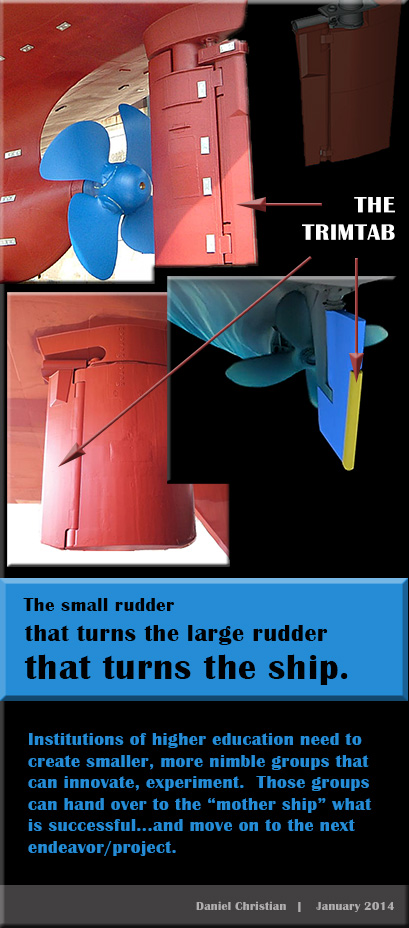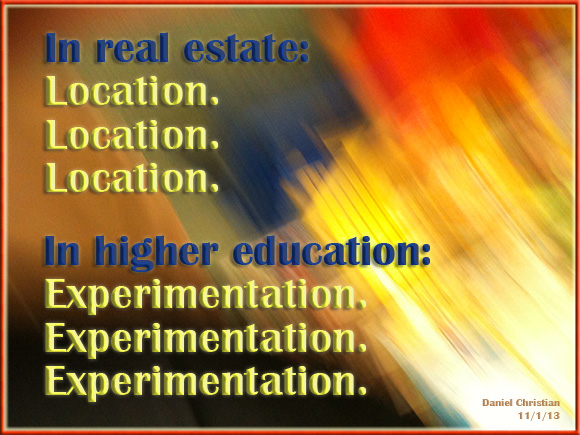Quote from Teaching to Learning: A New Paradigm for Undergraduate Education by Robert B. Barr and John Tagg (1995)
Buckminster Fuller used to say that you should never try to change the course of a great ship by applying force to the bow. You shouldn’t even try it by applying force to the rudder. Rather you should apply force to the trim-tab. A trim-tab is a little rudder attached to the end of the rudder. A very small force will turn it left, thus moving the big rudder to the right, and the huge ship to the left. The shift to the Learning Paradigm is the trim-tab of the great ship of higher education. It is a shift that changes everything.
So I would like to credit Buckminster Fuller with the idea of the trim-tab; as I put the following graphic together back in January 2014, I could not recall who had applied the words in that way…now I remember. (Perhaps applying the concept goes back prior to Buckminster, I’m not sure.)

And while I’m thinking of appropriate graphics for higher education, I’ll post this one that I did back in November of 2013 as well:

Also see:
- Uber, badging and higher ed — from by Joshua Kim
Excerpt (emphasis DSC):
What will happen to legacy higher education providers when the ownership society ceases to exist? We are in the midst of a reordering of our material world, a shift away from owning to renting, buying to consuming. How will this shift impact higher education?
…
The question is how should higher education evolve in the age of Uber and Airbnb? Is what we do in higher education really about credentialing, or is it about learning and individual development? Can we figure out ways that we can be more flexible, agile, and responsive – while not jettisoning our most closely cherished values and practices?Is higher education like the legacy taxi companies, with the taxi medallion analogous to the diploma? Could the value of diplomas drop as quickly as the price of taxi medallions have been falling if badges ever take off?Can we experiment with micro-credentials and smaller units of educational delivery than the traditional 4-year degree?How will we adapt if alternative credentials such as badging gain widespread currency in employment markets?Could we see badges as an opportunity to offer educational opportunities throughout the full lifetime of learner, rather than as something that precedes (and ends with) employment?
Also see:
- The days of giant lecture hall courses may be numbered — from educationdive.com by Tara García Mathewson
Free community college and the changing higher ed business model - [Addendum on 3/16/15]
SXSW Edu Highlights Schools Experimenting with Tech, Games — from gamesandlearning.org by Jackie Mader








